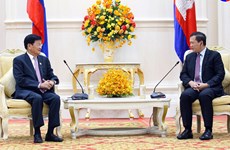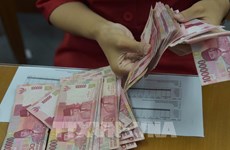Southeast Asia needs cooperation for post-COVID-19 recovery: ADB President
Southeast Asia’s recovery from the COVID-19 pandemic can best be achieved by all sides involved working together and closely collaborating to address challenges before them, said Masatsugu Asakawa, President of the Asian Development Bank (ADB).
 Masatsugu Asakawa, President of the Asian Development Bank (Photo: ADB)
Masatsugu Asakawa, President of the Asian Development Bank (Photo: ADB)Asakawa made his statement at the ADB's Southeast Asia Development Symposium 2021, themed “Innovation through Collaboration: Planning for Inclusive Post-COVID-19 Recovery”, which took place virtually on March 17.
In his speech, the president noted: “The COVID-19 pandemic presents an opportunity to rebuild our economy and society with more resilient and sustainable infrastructure. It has opened up new ways of doing business in many sectors.”
He said the three areas critical to a strong recovery consist of green recovery, big data, and domestic resource mobilisation.
According to him, the ADB estimates that green growth interventions could generate over 30 million jobs in Southeast Asia by 2030. Meanwhile, regional countries can capitalise on this digital transformation opportunities by making better use of big data to transform key government sectors such as healthcare, social protection, and education, allowing for more effective service delivery. Governments and the private sector can also leverage big data for better supply chain management across Southeast Asia.
Domestic resource mobilisation not only helps secure sufficient funding but also creates positive conditions to spark greener and more inclusive recovery, added Asakawa.
He concluded that all measures mentioned above require knowledge sharing and collaboration.
The two-day symposium gathered more than 3,400 participants from governments, the private sector, academia, think tanks, and NGOs from over 100 countries and territories.
The ADB is committed to achieving a prosperous, inclusive, resilient, and sustainable Asia and the Pacific while sustaining its efforts to eradicate extreme poverty. Established in 1966, it is owned by 68 members – 49 from the region./.













